Chevy Blazer EV: Price, range, interior, release and more
Here's everything you need to know about the Chevy Blazer EV
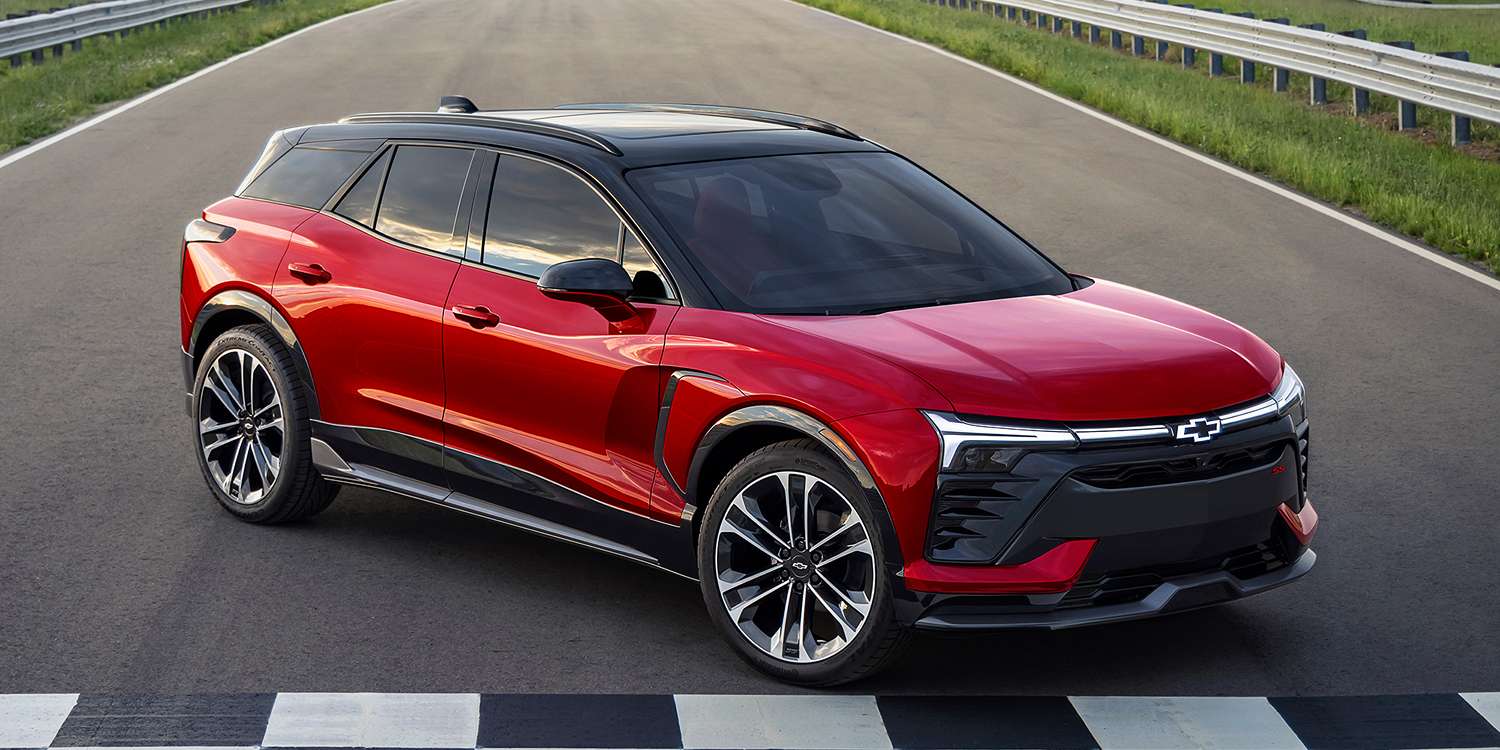
The Chevy Blazer EV is the next step in General Motors' path on the road to electrification. Chevy's parent company wants to go all-electric by 2035, and this new SUV is going to play a key role in that. Not just because the Blazer EV comes with a ridiculous number of options, but also because prices start at a very reasonable $44,995.
Normally electric cars only come in two basic configurations: All wheel drive and depending on the car company either front or rear wheel drive. Chevy’s taking a different approach with the electric Blazer, offering all three options when the SUV arrives next year.
Here's everything you need to know about the Chevy Blazer EV.
Chevy Blaze EV: Pricing and availability
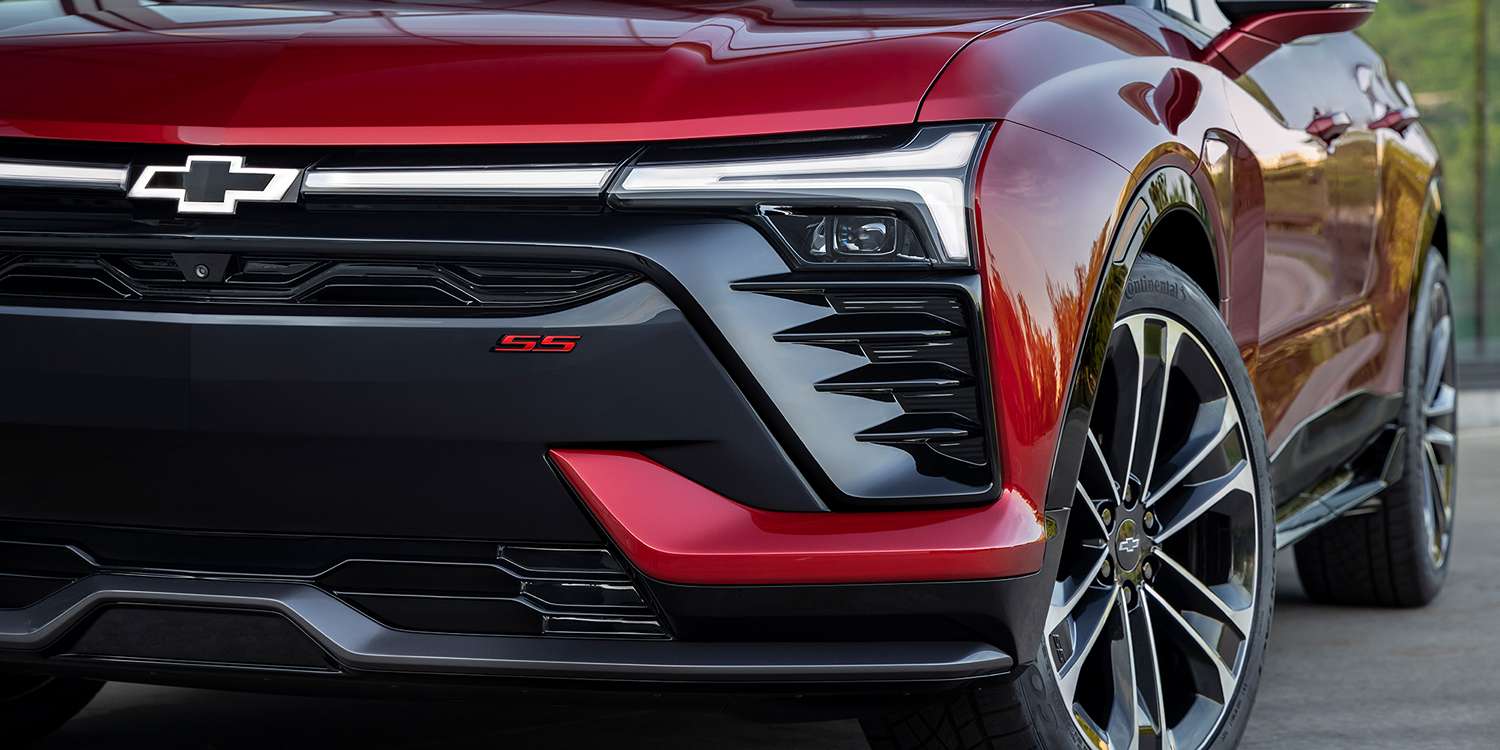
The first Chevy Blazer cars will arrive in the summer of 2023, with the launch of the Blazer EV 2LT and RS models. The 2LT will be available in FWD and AWD configurations, while the RS will be available in all three. Prices for the two will begin at a respective $47,595 and $51,995 — plus fees and destination charges.
A high-performance SS model will go on sale in late 2023, with an AWD drivetrain and prices starting at $65,995. A cheaper FWD 1LT model will go on sale in Q1 2024, with a starting price tag of $44,995.
Chevy Blazer EV: Range and charging
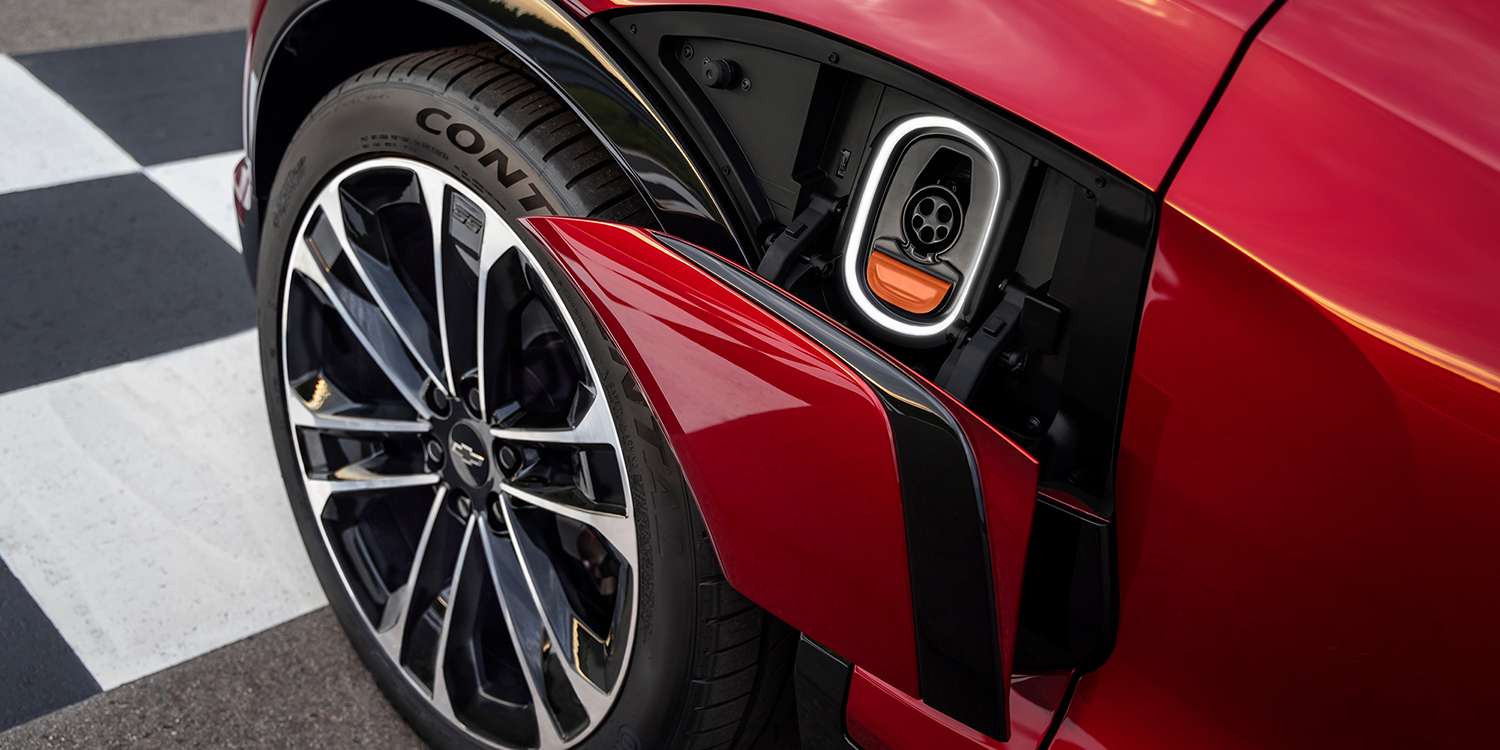
The Chevy Blazer EV will offer up to 320 miles of range (per the EPA testing cycle), but that’s only possible with the RS model. The 2LT model clocks in at 293 miles of range, and the performance-focussed SS has a 290-mile range estimate. The cheaper 1LT model has the lowest range of all, with 247 miles.
Those are all pretty impressive figures, even if the 1LT’s 247 mile range is fairly average. It means that no matter which option you pick, you’ll be getting some serious distance out of your battery.
Get instant access to breaking news, the hottest reviews, great deals and helpful tips.
Charging tops out at 190kW speeds, which Chevy claims will add 78 miles of range after 10 minutes of charging. It’s far from the fastest-charging EV out there, but it’s nowhere near the slowest. So when you do have to stop and recharge you should be back on the road pretty quickly.
Chevy Blazer EV: Performance
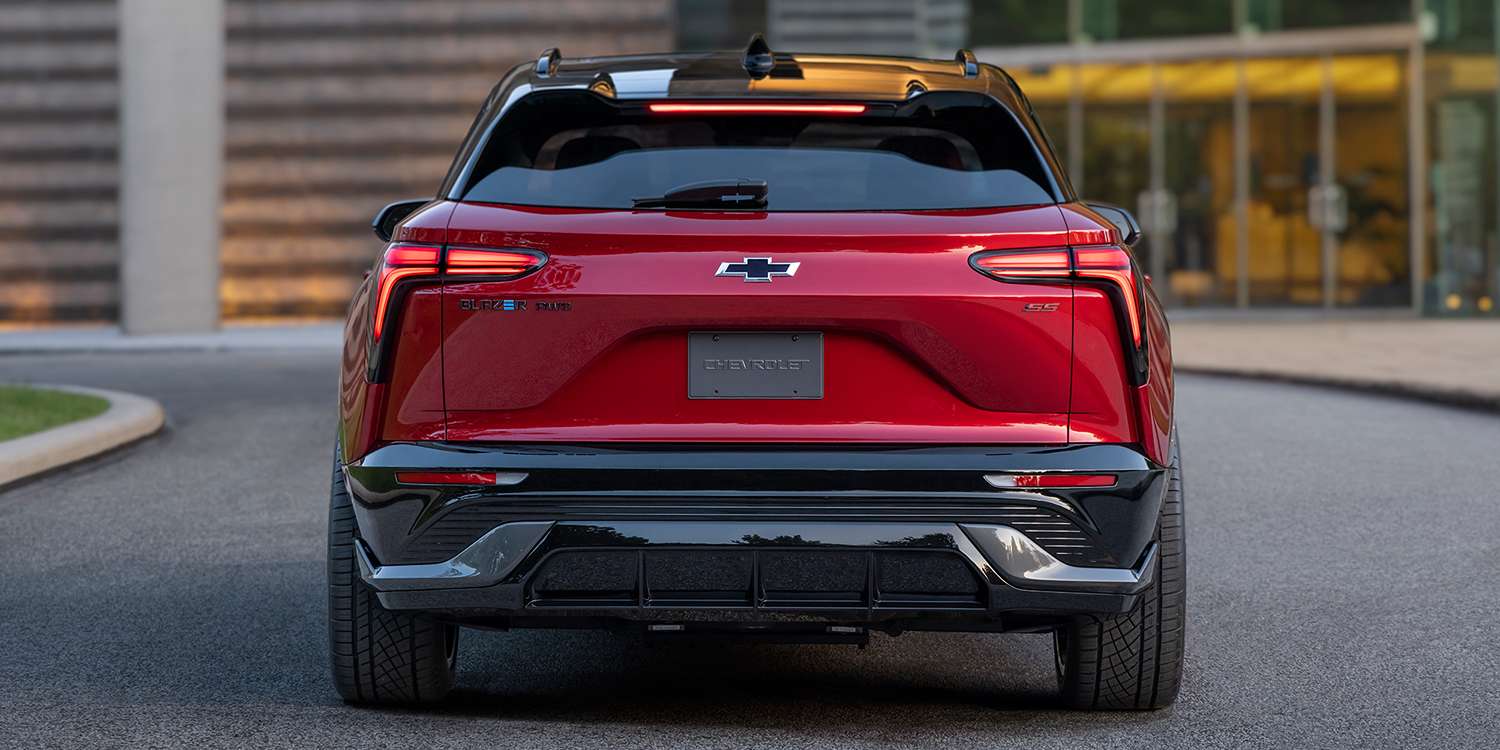
No electric car is complete without the ability to be quick off the mark. The Chevy Blazer EV is no exception, with the automaker promising a 0-60 time under 4 seconds. But that’s only if you’re driving the SS model, which packs in 557 bhp and 648lb ft of torque.
That’s pretty quick for an SUV, though far from the fastest out there. The Tesla Model X Plaid can hit that speed in 2.5 seconds, while the Performance Model Y does it in 3.5. But it still beats the likes of the Jaguar I-Pace (4.5 seconds) and the Kia EV6 (5.2 seconds).
This time also relies on what’s called WOW ( wide open watts) mode, which essentially functions as a launch control for maximum on-the-spot performance. It’s similar in scope to options available in other performance-focused EVs — including Tesla’s Ludicrous mode and Hummer’s WTF mode.
There’s no word on top speed, or how quick the less-powerful Blazer EV models are.
Chevy Blazer EV: Design and Interior
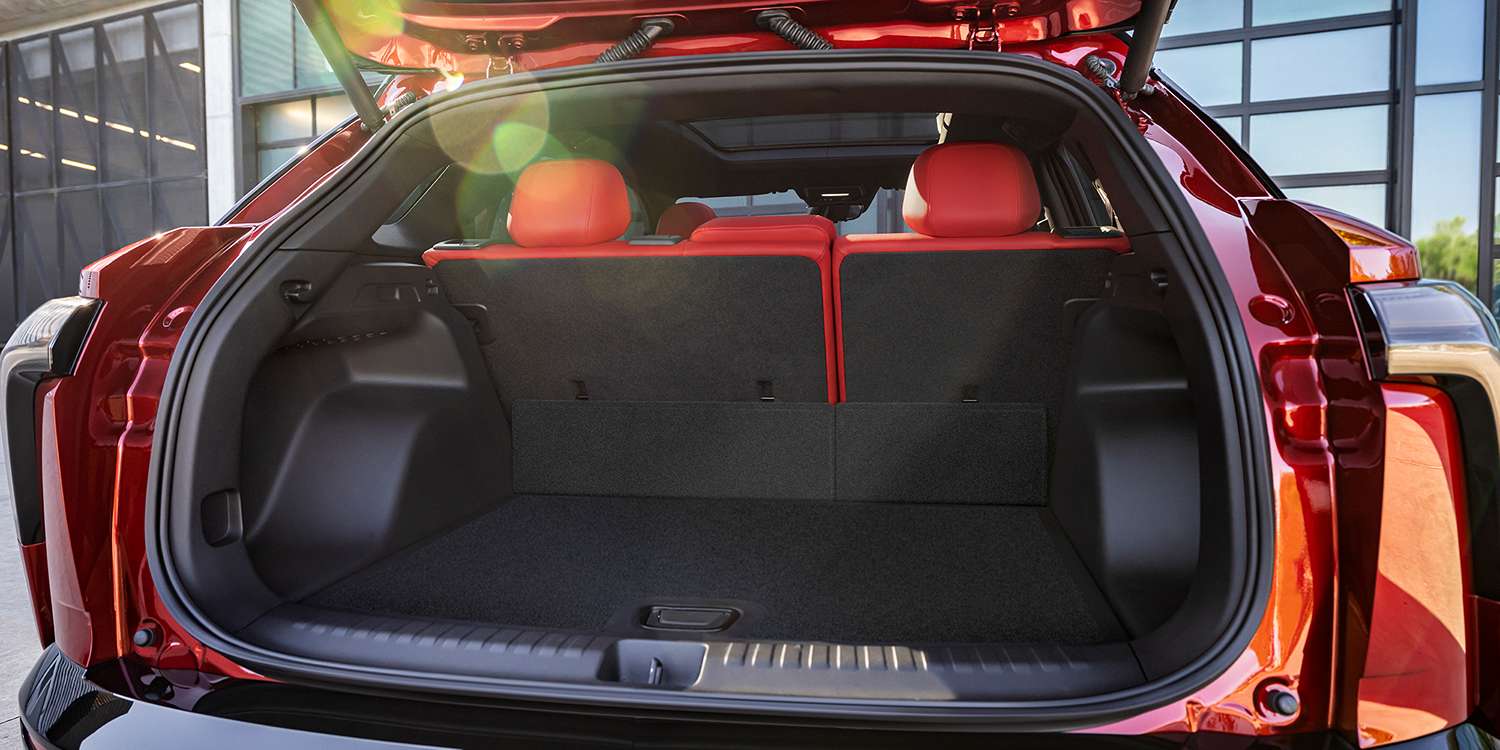
On the outside the Chevy Blazer EV doesn’t look that dissimilar from other electric SUVs on the market — though it is a bit bulkier-looking than something like the Hyundai IONIQ 5. It suggests there are only so many variations you can have on SUV design while still-maintaining aerodynamic efficiency.
There aren’t any flush door handles, however, which is a little surprising considering all the competing SUVs that include them. Chevy also hasn’t opted for a rear light bar, which some people might prefer, sticking with a more traditional brake light design. However, the front lights do appear to be designed to give the appearance of a solid bar. The Chevy logo even lights up.
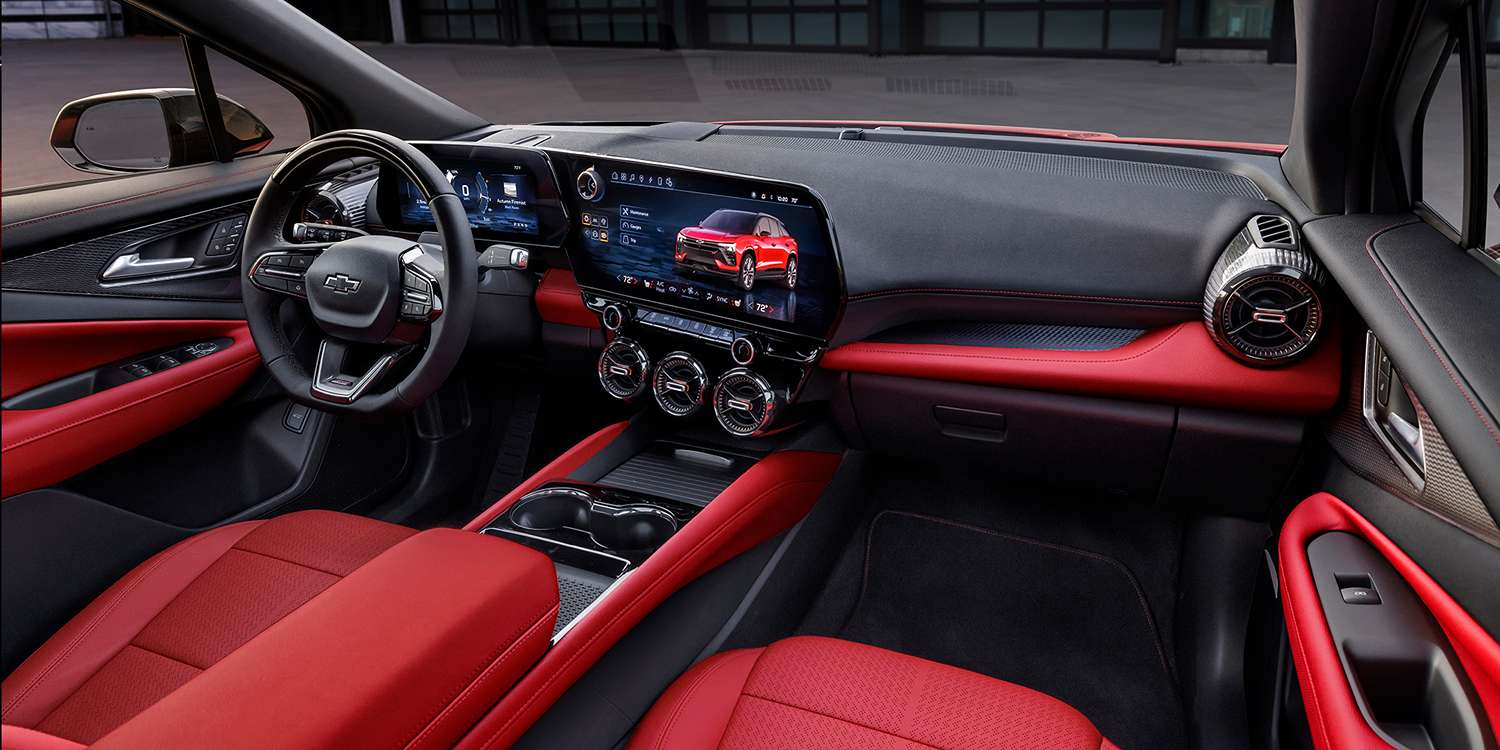
On the inside Chevy has designed the floor to be flat for “ample spaciousness.” That isn’t a unique selling point, but it’s a great benefit to going electric — especially in an SUV-sized car. That amounts to 59.2-cubic feet of cargo space, with the rear seats folded down.
It’s not as much as the Tesla Model Y, which has 65.9 cubic feet, but it’s still larger than the likes of the Kia EV6 and Jaguar I-Pace.
Also inside is a 17.7-inch infotainment display, which has been angled to ensure it’s closer to the driver. Next to it is the 11-inch driver information display which sits behind the steering wheel. That’s where you’ll find all the important information like current speed, range and so on.
Fortunately, unlike some companies, Chevy hasn’t replaced all the buttons with touchscreen controls. So there are still physical buttons and dials on the center console and steering wheel.
Chevy Blazer EV: Technology
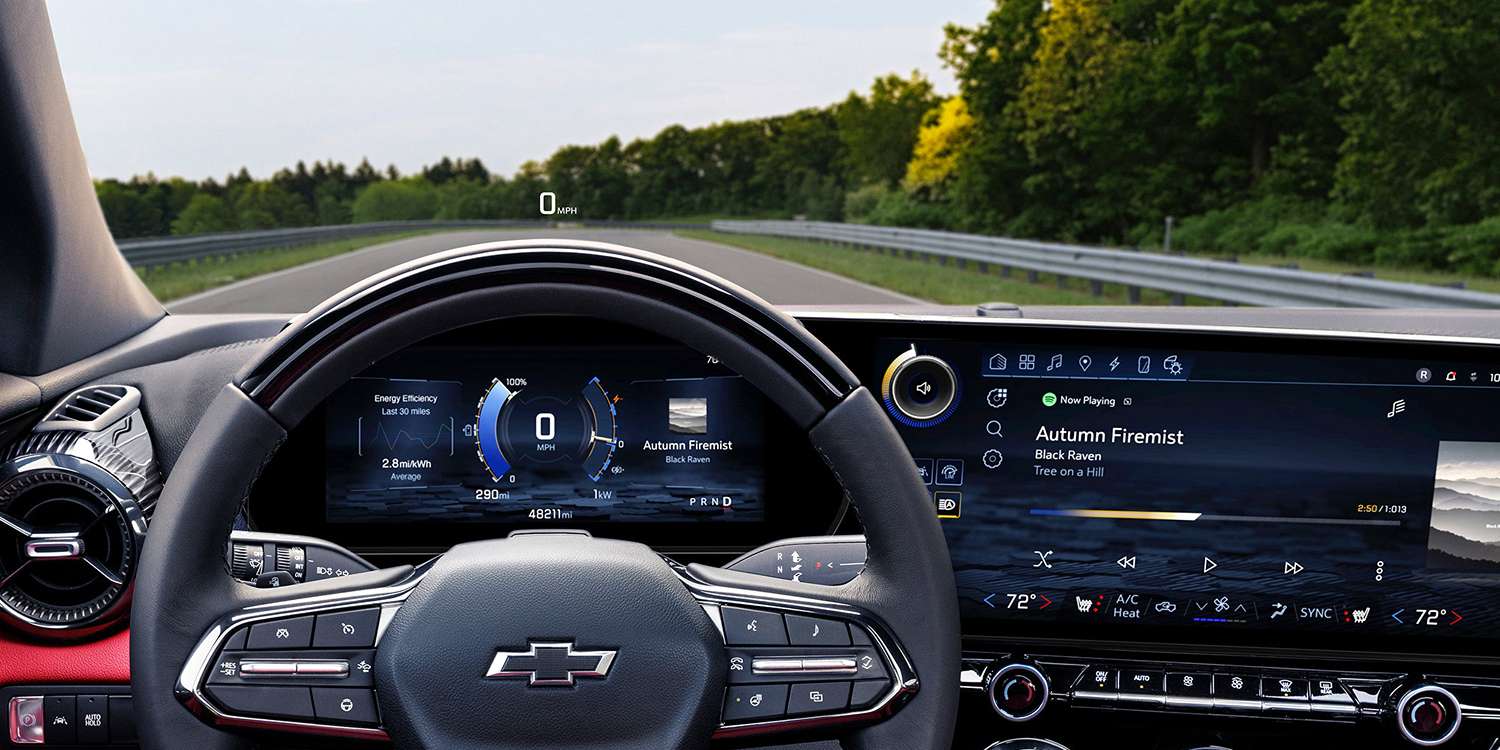
All Chevy Blazer EV models come with Chevy Safety Assist as standard. This system is not the self-steering Super Cruise, it’s a lot more basic than that. With it you get automatic emergency braking, lane keep assist and departure warnings, forward collision alerts, follow distance indicators and intelligent automatic high beams.
The Super Cruise hands-free driving system will also be available, and is a standard feature on the SS model. This is your semi-autonomous driving system, which is able to control steering and acceleration — but is a long way off “true” autonomy. It does let you take your hands off the steering wheel at certain points, something other driver assistance systems lack.
The Blazer EV also comes with wireless versions of Android Auto and Apple CarPlay, a wireless charging pad, and a hands-free starting system. That works by shifting you into drive when you get in the car and tap the brake.
Chevy Blazer EV: Outlook
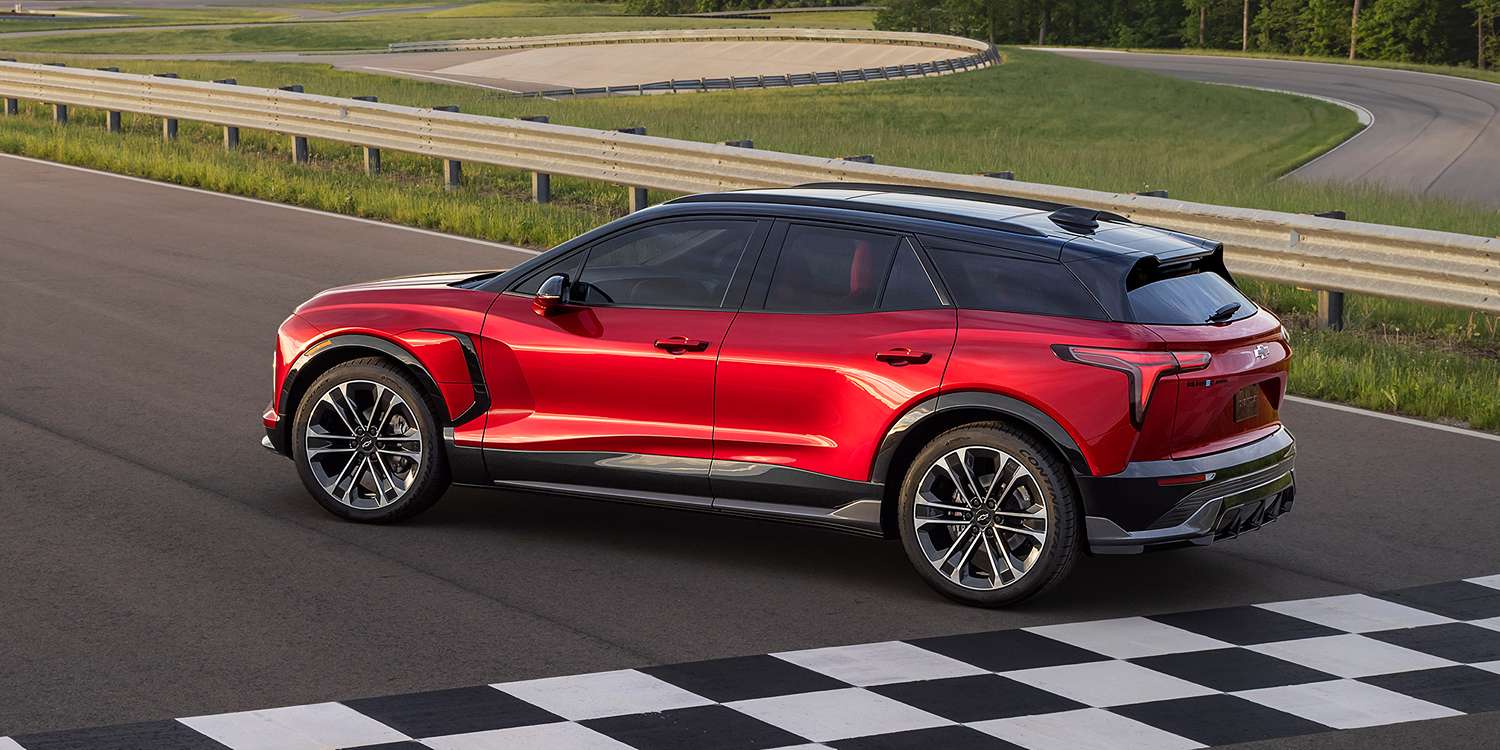
When it comes down to it, the Chevy Blazer isn’t likely to be a ground-breaking EV. Sure, it gives you the option to choose between front, rear and all wheel drive models, but that isn’t the kind of feature the majority of drivers will be too concerned about. The best thing about the electric Blazer is it's affordability; especially with Chevy selling the car for as low as $45,000.
That’s where the Chevy Blazer has the opportunity to shine. It’s not a cheap SUV, but like the Kia EV6 it’s on the cheaper end of the EV pricing spectrum without forcing you to sacrifice important features like range, fast charging or driver assistance. And because of that the Blazer EV has the potential to do very well.

Tom is the Tom's Guide's UK Phones Editor, tackling the latest smartphone news and vocally expressing his opinions about upcoming features or changes. It's long way from his days as editor of Gizmodo UK, when pretty much everything was on the table. He’s usually found trying to squeeze another giant Lego set onto the shelf, draining very large cups of coffee, or complaining about how terrible his Smart TV is.
 Club Benefits
Club Benefits





